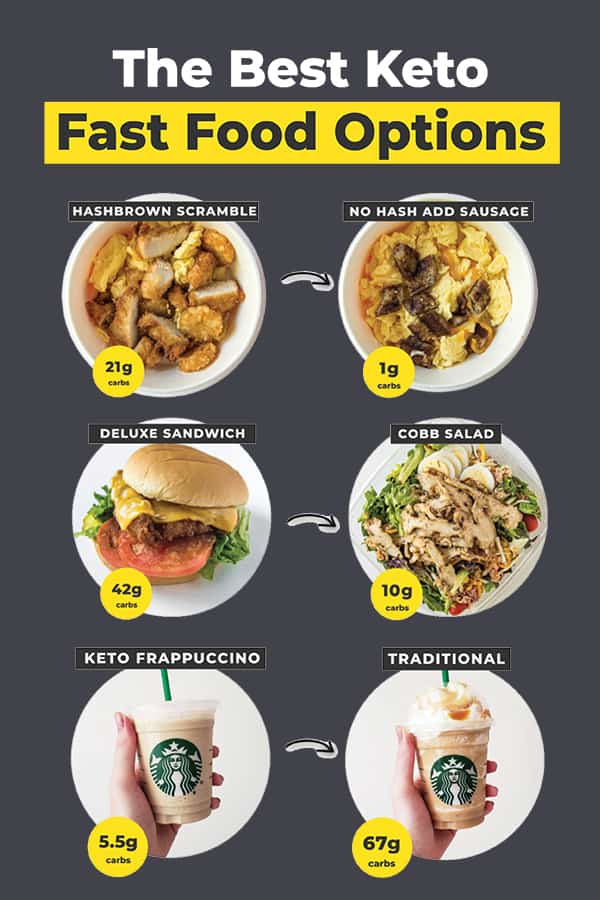Apply Now
Essential Guide to Ketogenic Diet Plan in 2025
The ketogenic diet, commonly referred to as keto, has become a popular nutritional strategy, primarily due to its ability to promote weight loss and its many associated health benefits. A well-structured keto meal plan is essential for anyone looking to transition into this high-fat, low-carbohydrate lifestyle. For beginners, understanding the fundamentals of the ketogenic diet, including how to maintain ketosis, is crucial. This guide aims to provide you with effective recipes, practical tips, and an overview of what to expect on your keto journey in 2025.
With the increasing popularity of the keto lifestyle, there are more resources available than ever to help you succeed. From easy keto meals and snacks to grocery lists specifically tailored for the ketogenic diet, you'll find everything you need to stay on track. Emphasizing healthy fats while minimizing carbohydrate intake can lead to significant improvements not just in weight loss but also in overall well-being. By following this guide, you will discover a roadmap to achieving your weight loss goals with delicious keto meal ideas.
In this comprehensive article, we'll delve into effective keto meal planning strategies, delve into the benefits of ketosis, and showcase a variety of low carb recipes designed to keep your meals exciting and nutritious. You'll also find a dedicated section for keto-friendly snacks and meal prep ideas, enabling you to stick to your ketogenic diet with ease.
Understanding the Ketogenic Diet and Its Benefits
Exploring the ketogenic diet begins with understanding what it entails. Essentially, it's a high-fat, low-carbohydrate diet that forces the body into a state of ketosis. In ketosis, your body becomes efficient at burning fat for energy instead of carbohydrates, leading to various health benefits including weight loss and improved mental clarity.
The primary goal of the ketogenic diet is to shift your metabolism from burning glucose to burning fat, which provides a steady and sustainable energy release throughout the day. Ketosis benefits include enhanced fat loss, better insulin sensitivity, and potential neuroprotective effects, making it an appealing option for those looking for both weight management tools and improved cognitive function.
However, embarking on a ketogenic journey isn't without its challenges. Many encounter misconceptions about the diet, such as the primal fear of fat consumption leading to heart disease. Understanding the science behind healthy fats and how they work within the body is crucial. Your body needs healthy fats for hormone regulation, brain function, and to absorb essential nutrients.
With these aspects in place, transitioning to a ketogenic lifestyle can be seamless and rewarding. Setting realistic goals and preparing can ease the process, so keep reading to uncover effective strategies and keto meal plan tips.
The Science of Ketosis Explained
Ketosis is a metabolic state where your body, lacking sufficient carbohydrates, begins to utilize fat stores for energy. This process generates ketones - an alternative energy source for cells, particularly beneficial for the brain. Understanding how to maintain ketosis is paramount for anyone on the ketogenic diet.
To achieve and sustain ketosis, most people need to follow a strict macronutrient ratio, generally consisting of about 70% fat, 25% protein, and only 5% carbohydrates. This necessitates vigilance in tracking net carbs—total carbohydrates minus fiber—to ensure you're not exceeding your limits.
As you adapt, some individuals might experience the 'keto flu', a collection of symptoms including fatigue, headache, and irritability. This phase typically occurs within the first few days of cutting carbs but is usually temporary as the body transitions to a fat-burning state. Staying hydrated and ensuring adequate electrolyte levels can significantly ease these symptoms.
Key Macronutrients in a Ketogenic Diet
Understanding the macronutrients involved in a ketogenic diet isn't just beneficial—it's essential for success. Fats are your primary energy source on keto, so integrating healthy options like avocados, nuts, and olive oil is vital. Proteins should also be consumed, but moderation is key; excess protein can convert to glucose through gluconeogenesis, hindering your ketosis.
Notably, while ketogenic foods emphasize high-fat content, it's equally important to focus on nutrient-rich profiles. While many low carb vegetables are permitted, it is advisable to prioritize fibrous greens to support digestion.
Finally, understanding the balance of electrolytes—sodium, potassium, and magnesium—is crucial in managing energy levels and preventing muscle cramps or fatigue during initial transitions into ketosis.
Crafting Your Keto Meal Plan
Building a personalized keto meal plan can be instrumental in ensuring you have a sustainable approach to your lifestyle change. Planning your meals and snacks ahead of time can alleviate the apprehension that comes with food choices on keto.
Your meal plan should include breakfast, lunch, dinner, and snacks, focusing primarily on whole foods that align with your ketogenic goals. Incorporating nutrient-dense meals will provide you with the energy needed for daily tasks while continuously pushing your body into fat-burning mode.
Essential Ingredients for Success
Creating a ketogenic meal plan starts with knowing what ingredients to have on hand. A well-stocked pantry should feature high-fat foods such as coconut oil, butter, and a variety of meats, including fatty fish.
Low carb vegetables—like spinach, kale, and zucchini—should be prominent in your fridge. Moreover, stocking up on healthy snacks like nut butter or cheese can help you avoid temptation.
To ensure variety and keep your meals interesting, incorporate different spices and herbs. These not only enhance flavors but can provide health benefits, too.
Meal Prep Ideas for the Keto Diet
Meal prep is a game-changer for anyone committed to a ketogenic lifestyle. Batch cooking several meals at once can save time during the week and help prevent you from straying from your diet.
Consider creating keto-friendly lunch options, like lettuce wraps with turkey or chicken salad made with full-fat mayo. Dinner could involve easy-to-prepare recipes like baked salmon with asparagus or zoodles topped with a creamy pesto sauce.
Utilizing kitchen tools like slow cookers or air fryers can streamline your cooking process. Organizing meals into portion-sized containers makes accessibility easier and promotes better adherence to your meal plan.

Exploring Delicious Keto Recipes
The ketogenic diet doesn't have to be monotonous. There are multitude of delectable recipes that can help in making your nutritional program enjoyable and sustainable. Let's explore specific meal ideas spanning breakfast, lunch, dinner, and snacks.
Mouth-Watering Breakfast Options
Starting your day on a keto-friendly note is crucial. Consider making a simple egg omelet filled with spinach and cheese for breakfast, which is both satisfying and low in carbs.
For those with a sweeter tooth, sugar-free pancakes made with almond flour and served with sugar-free syrup can be an exquisite treat. You can also whip up some keto smoothies—just make sure to include low carb ingredients like unsweetened almond milk and avocado to maintain your net carb limits.
Hearty Lunch Ideas
As midday hunger strikes, fuel up with protein-packed lunches. Chicken or tuna salad served in an avocado half can be the perfect solution.
Keto wraps using lettuce or cheese can also serve as a convenient and delicious lunch option. Fill them with your choice of deli meats, cheese, and low carb veggies for a satisfying meal.
Delicious Dinner Recipes
Dinner is a great opportunity to delve into keto-friendly recipes that truly satisfy. Try preparing cauliflower rice stir-fry or a creamy mushroom chicken dish that highlights the versatility of low carb ingredients.
You can also explore high-fat entrees like slow-cooked beef brisket or casseroles that leverage healthy fats and proteins, keeping your meals aligned with ketogenic principles.
Keto Snacks for Sustained Energy
Snacking on the keto diet can be easy and enjoyable. Focus on nutrient-dense options that keep you on track with your macro ratios.
Some great keto snacks include cheese and olives, beef jerky with no added sugar, or nut mixes. Additionally, keto-friendly protein bars can be a lifesaver in low-energy moments.
To add variety, consider low carb dips using ingredients like guacamole or cream cheese served with sliced vegetables. These make for wholesome, satisfying snacks that promote your dietary goals while keeping hunger pangs at bay.

Keto Lifestyle: Maintaining Success
The transition to a ketogenic lifestyle involves more than just meal planning; it encompasses broader lifestyle choices that significantly affect your overall wellness.
Staying motivated on keto requires an understanding of your body. Tracking your progress can help you recognize which strategies work best for you. Using a keto app for tracking daily intake can make this easier.
Additionally, social support—whether from friends, family, or online communities—can bolster your resolve. Share your success stories and challenges for valuable feedback and camaraderie.
In maintaining your keto lifestyle, educating yourself on ketosis benefits and understanding the dietary science behind it can keep you focused and engaged. Embrace the journey and remember that keto doesn't have to be a restrictive diet; it can be an enjoyable culinary adventure filled with flavorful and health-promoting meals.
This guide has provided a comprehensive overview of the ketogenic diet plan, complete with effective recipes and practical tips for success. Start preparing, and you'll soon discover how exciting the world of keto can be as you embark on this transformative journey towards better health.


